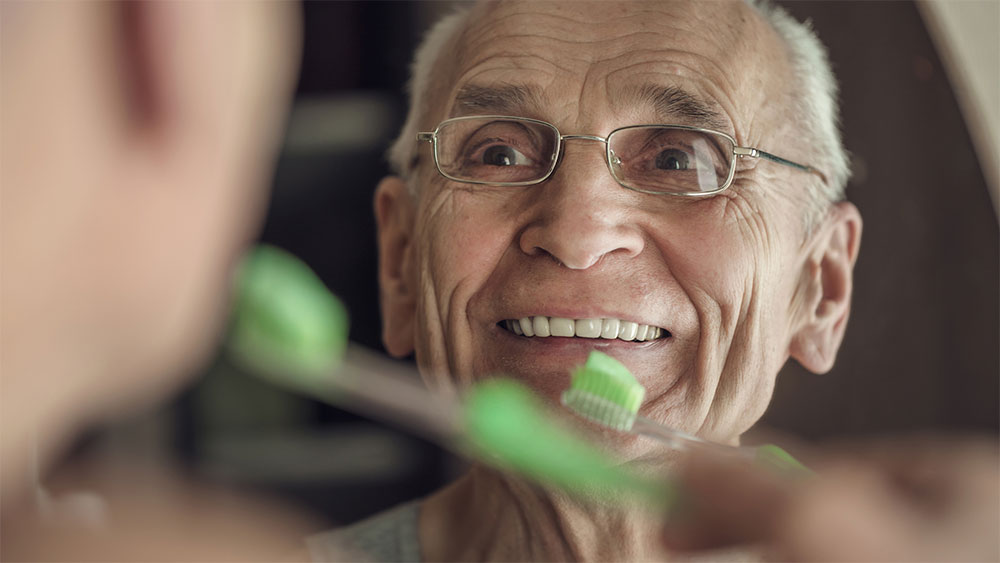
Maintaining proper oral hygiene for seniors with dementia can be challenging.
It is one of the first things we do every morning, and one of the last things we do every night, typically on autopilot without giving it a second thought. Yet it actually is a complicated process composed of multiple steps, making this seemingly simple task quite a challenge for a person with dementia.
Proper oral hygiene is essential for everyone, in spite of age, and not just to keep our teeth and gums healthy. Poor dental hygiene can result in serious health issues, including heart disease, osteoporosis, stroke, respiratory disease, and much more. It may also impact the ability to eat and talk.
Dental Hygiene For Seniors With Dementia
So how are you able to ensure a loved one with dementia maintains proper oral hygiene? These recommendations from Live Free Home Health Care, providers of home care in Tilton and the surrounding areas, can help:
- Modeling is an excellent method to help a loved one with dementia through a multistep process like brushing one’s teeth. Allow the person to complete each step of the process on their own when possible: placing a small amount of toothpaste on the brush (baking soda toothpaste is preferred over fluoride, in case the person swallows it), lifting the brush to the mouth, and moving the brush side to side and up and down over all surfaces of the teeth.
- For a person who needs help, provide a toothbrush with toothpaste already applied, stand behind the person, and put your hand over theirs, starting the motion of brushing for them.
- If holding the brush is hard, there are longer-handled toothbrushes available, or, cut holes in a tennis ball and push the brush through, giving the individual something more substantial to hold onto. A battery-powered toothbrush is also an excellent choice to try.
- Flossing is also an important part of dental hygiene. For independent flossing, try floss holders or other implements designed to make it less difficult and much more efficient. If you’re flossing the senior’s teeth, again, standing behind the individual may be easiest.
- If the senior has dentures, make sure to remove, brush, and rinse them each day. While the dentures are removed, a soft-bristled toothbrush should be used to gently clean the senior’s gums and roof of the mouth.
Don’t Forget the Dentist
If at all possible, find a dentist who is skilled in dementia dental hygiene. An older adult with dementia should continue to receive regular dental exams, which include checking dentures to make certain of a proper fit and also to rule out any complications with the teeth or gums. Someone with dementia who is unable to communicate dental pain or discomfort may exhibit signs including:
- Touching the cheek or jaw, or rubbing the affected region
- Nodding or rolling the head
- Resisting any hygiene around the area, including washing the face or shaving
- Sleeping difficulty
- Aggression, moaning, or yelling
- Unwillingness to put dentures in
If any of these symptoms are noted, schedule an appointment with the dentist right away.
For more tips to maintain proper oral hygiene for seniors with dementia, reach out to Live Free Home Health Care, a provider of trusted home care in Tilton and nearby areas, at 603-217-0149. For a full list of all of the communities where we provide our award-winning in home care services, please visit our Service Area page.
